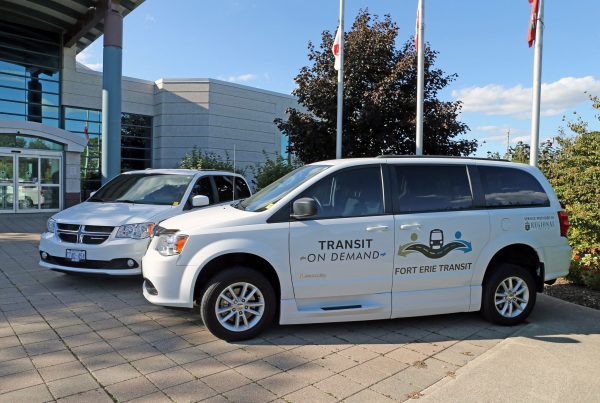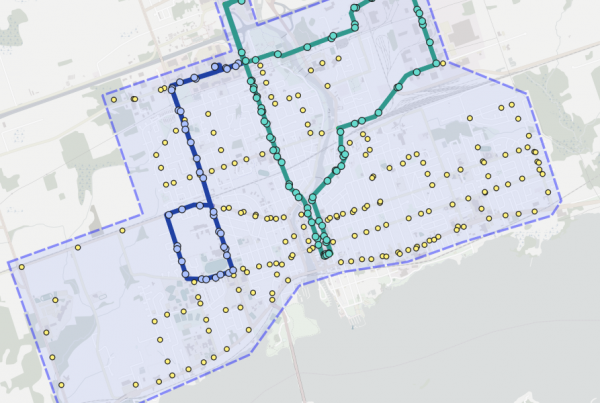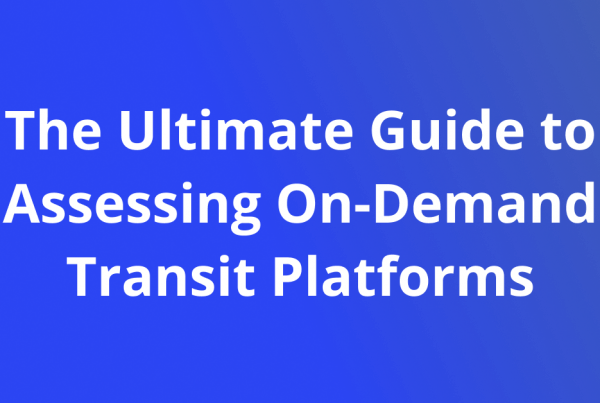4 Key Takeaways From University of Toronto’s ‘Benefits of On-demand Transit’ Survey
By: Gurjap Birring
The City of Belleville introduced on-demand transit for their evening service in September of 2018. This service takes buses on optimized journeys rather than follow fixed routes. Riders request trips via a mobile app, online portal, or over the phone. Buses are then routed by AI-technology in real time while optimizing for efficiency, without human intervention.
After one year in service, and 3,000 registered service users, an independently funded research team from the University of Toronto conducted interviews and surveys of on-demand transit riders to better understand social and economic outcomes of the on-demand transit service. The full report by the academic team can be found here.
Here are four key takeaways from the survey.
ODT is Increasing Access to Mobility
On-demand transit (ODT) service is increasing access to mobility for economically disadvantaged groups with over 70% of survey respondents indicating that ODT made night travel more convenient.
While the median total income of individuals in Belleville was $30,661 as per 2016 Census data, ODT users predominantly have lower income levels. Of all survey respondents, 62% reported earning less than $20,000 per year, roughly 30% earn $20,000 to $40,000 per year, and less than 10% earn more than $40,000 per year.
Data also suggested that many ODT users lack other options for travel. Respondents who are low-income earners are less likely to have friends or family that can drive them places in comparison to high-income earners.
Overall, the results indicate that ODT provides mobility for people who are more likely to earn below average income, have limited housing budgets, and lack alternative transportation options.
Many Riders are Using ODT to Travel to Work
The survey also helped to understand the purpose of ODT rides and bring greater clarity as to how riders are using the service.
The majority of riders (72%) indicated that they used the ODT service to travel to work. For other purposes, 44% of respondents indicated they traveled to buy groceries, 39% to visit friends and family, and 30% for recreational activities. Surprisingly few students used the service for school trips, however this is likely because the college campus closes before ODT service begins.
Positive Impacts on Economic Well-being
ODT service has helped provide riders with better night-time transportation and survey respondents indicate it has made finding and maintaining jobs easier.
When asked if they can work at night at least partially due to the introduction of ODT service, 40% of respondents strongly agreed. About 25% of respondents also strongly agreed that they have a better job now than before the ODT service was launched.
The findings point to ODT making night travel easier for workers resulting in greater accessibility to find and keep jobs and greater convenience in getting to and from work. This is especially important since most of the sampled riders are young, low-income earners, who lack other transportation options.
Riders Experiencing Increased Social Inclusion
With added night travel choices, ODT riders are finding they have more opportunities to participate in leisure activities and maintain social networks. Over 50% of respondents believe ODT service allows them to engage in more meaningful and enjoyable activities at night.
About 50% of respondents also reported that ODT service allowed them to visit family and friends more often, as well as, made them feel a sense of belonging to the community.
Many also agreed that they are able to spend more time on entertainment, arts and culture, and physical activities.
With many international students among the respondents, ODT service gives people, who are new to not only the city but the country, an opportunity to make friends, partake in civic activities, and enjoy a better quality of life.
———
Register For Our Webinar!
Professor Steven Farber, Department of Human Geography, and Professor Shauna Brail, Director Urban Studies Program, join us for an in-depth discussion on the social and economic outcomes of on-demand transit uncovered in their report.






One Comment